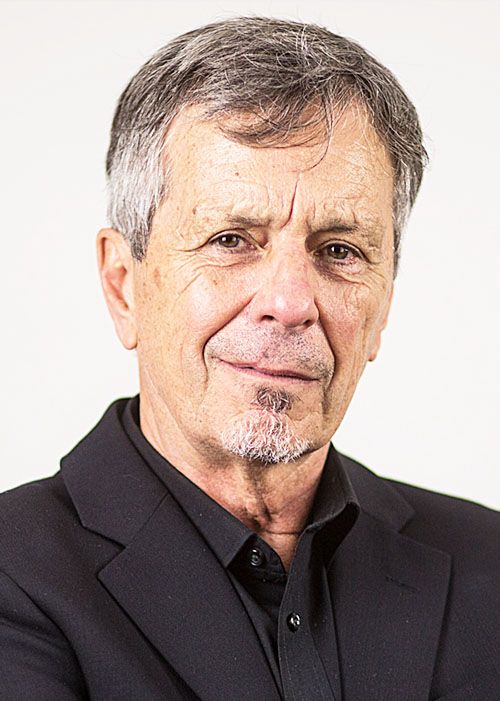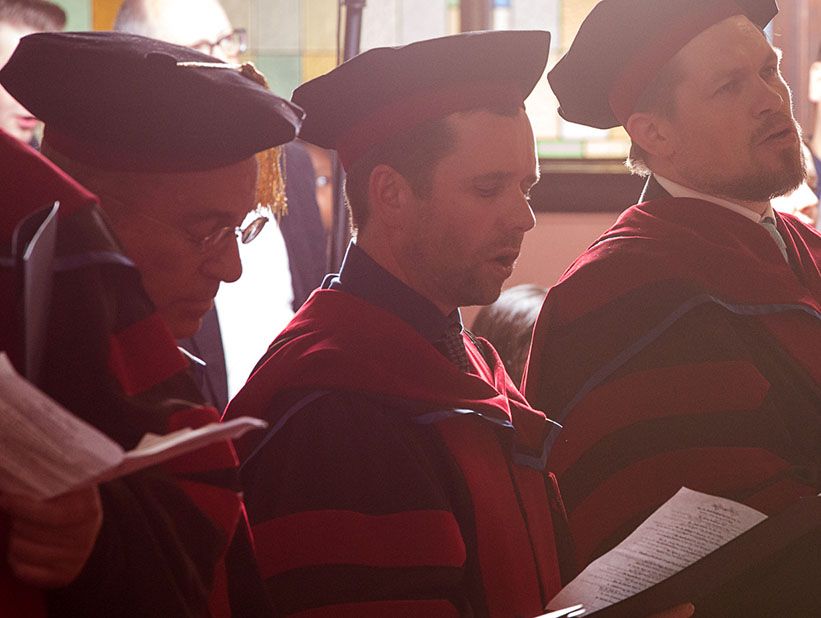
ONLINE TEACHING MODEL AT CAREY THEOLOGICAl COLLEGE
WITH DR. BERNIE POTVIN
"Don’t waste your time teaching online."
There he sat. Drinking his coffee. Eckert Tolle, the best-selling author, Oprah Winfrey’s guru, popular with thousands of people, a writer promoting living in the now, the present. I was with a Carey Doctor of Ministry student at the Starbucks at Westbrook Mall on UBC campus.
We were discussing an important question, “What is it that effective teachers do and have that makes the greatest difference in their student’s lives?” I asked my student how she would feel if we were to ask Tolle his opinion. With the necessary apologies leading the interruption, we approached his table and asked him for his opinion.
‘Consciousness.’
One word. That was all he said. Not wanting to look more perplexed (a nicer word than stupid) than I already looked, I said, ‘Thank you. I get it.’
I didn’t get it. I lied.
Ten years later. I understand Tolle’s answer that ‘consciousness’ is a difference maker-it is what effective teachers have and ‘do’ that makes the difference. I am not lying.
My understanding of consciousness and its important role it plays in teachers’ effectiveness emerged ten years after our meeting with Mr. Tolle. Because I don’t have a life (I guess), I spend a lot of time reflecting on experiences-theologically and pedagogically. When I ‘think about my thinking’ about consciousness over these past years, I recognise that I owe a lot to the conditions of learning that time afforded me-time to both safely and dangerously engage in a number of important cognitive activities-hypothesising, inferring, reflecting theologically, analysing. I had time to engage in authentic conversations, read with a purpose, re-imagining new futures, better possibilities I was able to safely and dangerously inquire into the psychology, history and scriptural references to consciousness, without being embarrassed in front others, should I venture an opinion or idea, and sound unchristian. My accommodation to this important concept was a social construction that I could control, direct and guide, and do so safely and dangerously, fairly testing the universe of consciousness to see if it rang true (C.S. Lewis). And, in my community of learners, connections were made because we were pursuing together what is true about the universe, about God’s design and intention for people.
These conditions and more, that contributed to my understanding of a complex and important concept, are not only offered in online courses, they are best offered in online courses.
This past month my Carey online course came to an end-Nurturing Faith: Re-imagining the Mission of Christian Education in the Church. I participated in the development and reading with high satisfaction some of the finest pieces of work I have ever encountered in graduate school. One young man re-imagined men’s programs in churches-one that went deeper than Wild at Heart. Another middle school teacher reconceived biblical studies, into a four section, developmental, iterative and engaging (for middle school youngsters) set of learning activities. Another person designed a narrative based old testament program, one that emphasised understanding larger stories (e.g. Exodus) through understanding each learner’s smaller story of exodus. Risky, important, rich with possibilities for the old testament, the Jewish scriptures to come alive). I am not at all sure how I could have participated in such outstanding outputs, visible expressions of learning in a face to face environment. I never have in the past. I have tried. Maybe I am not endlessly fascinating either (I don’t take it personally).
This past month I met in a series of online sessions with five M Div students, all international students I have been assigned to supervise though their Cornerstone course. Cornerstone is a nine month, interdisciplinary and intensively integrated first set of learning experiences designed to provide the scaffold for the students’ online completion of their degree over the next three or more years. Ghana, Zambia, United Kingdom, Zimbabwe, and Kenyan students, all able to meet with me, share their life story, reflect deeply with me on the spiritual autobiography, experience coaching, being mentored and above all cared for and committed to. Once again, I walked away from an online session telling myself, “Bernie, be patient with people who continue to claim that face to face teaching is a necessity, the best way to develop meaningful relationships, establish learning communities, create and nurture pedagogic connections.”
Carey is onto something very important in its online emphases.

ABOUT DR. BERNIE POTVIN
Dr. Potvin is an educator and leader of educators-an overachiever-with experiences as a school and university administrator, university professor, classroom teacher and educational technical advisor and consultant for government and non-governmental organisations and external evaluator for university and church programs.
Having designed and led in the implementation of two accredited Bachelor of Education degree programs in Alberta and was the first appointed Associate Dean for both programs. Bernie has been a Superintendent of a small system of three schools.
Share this Post


